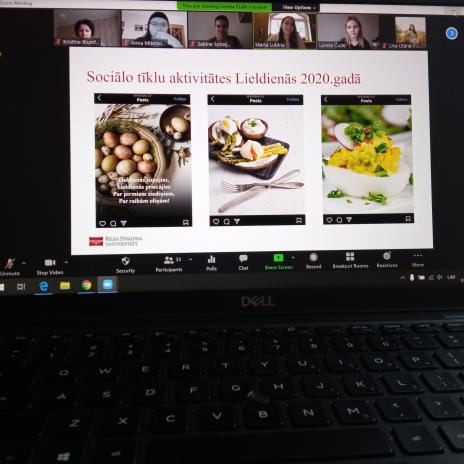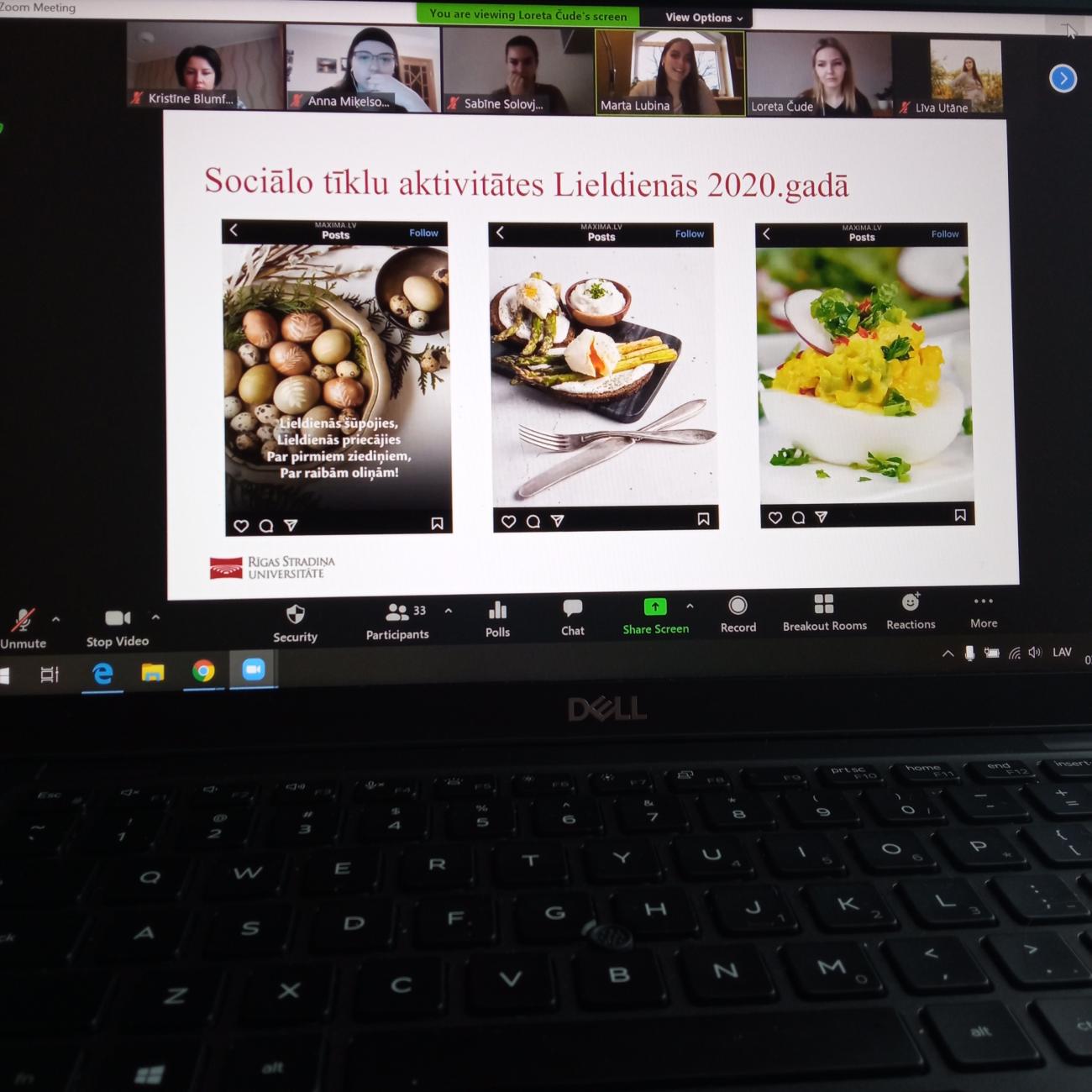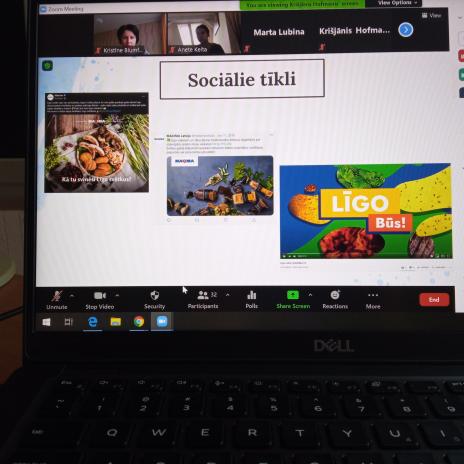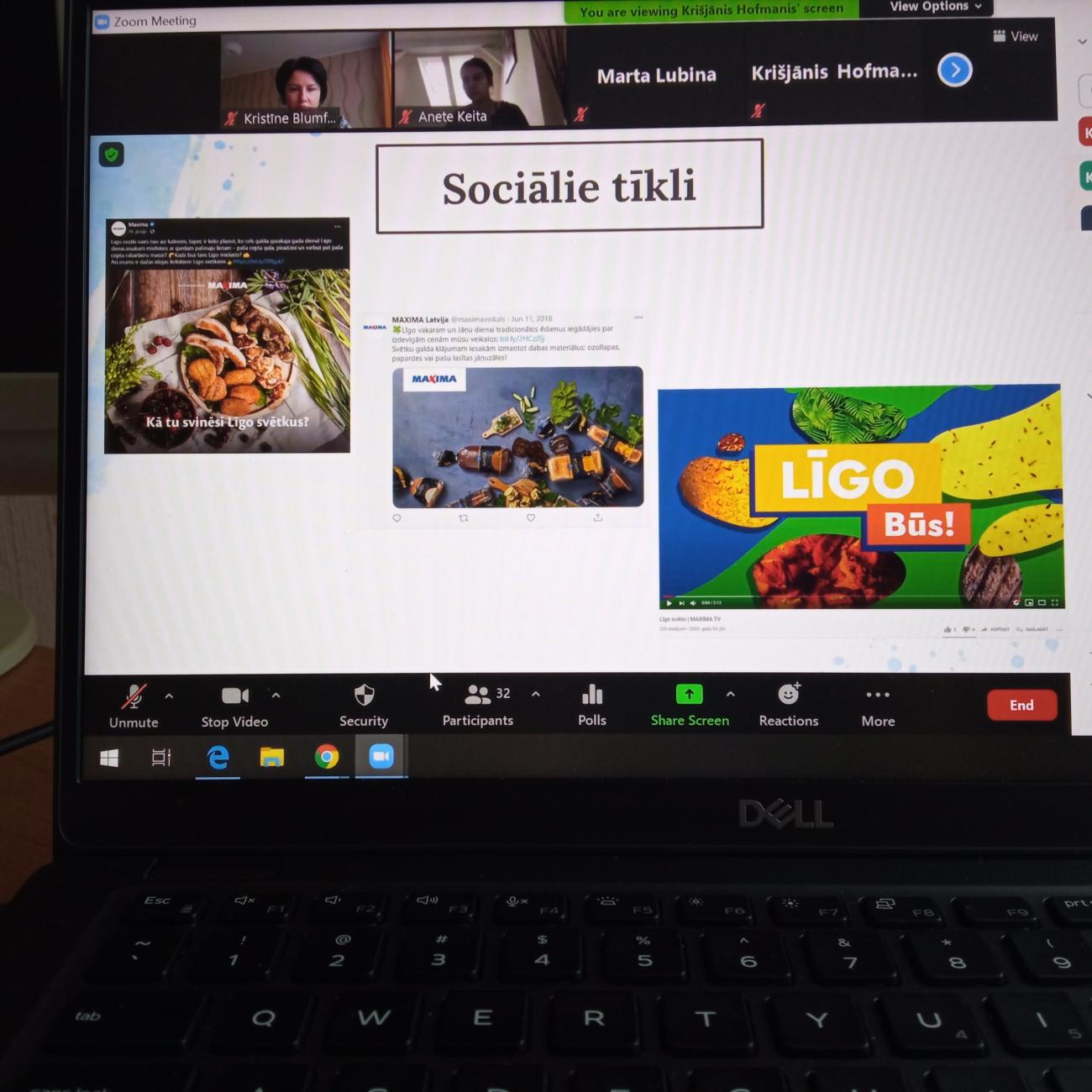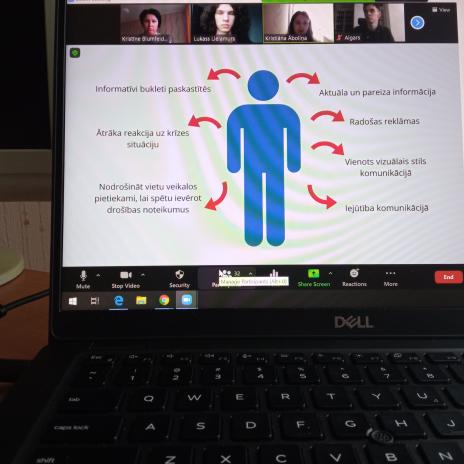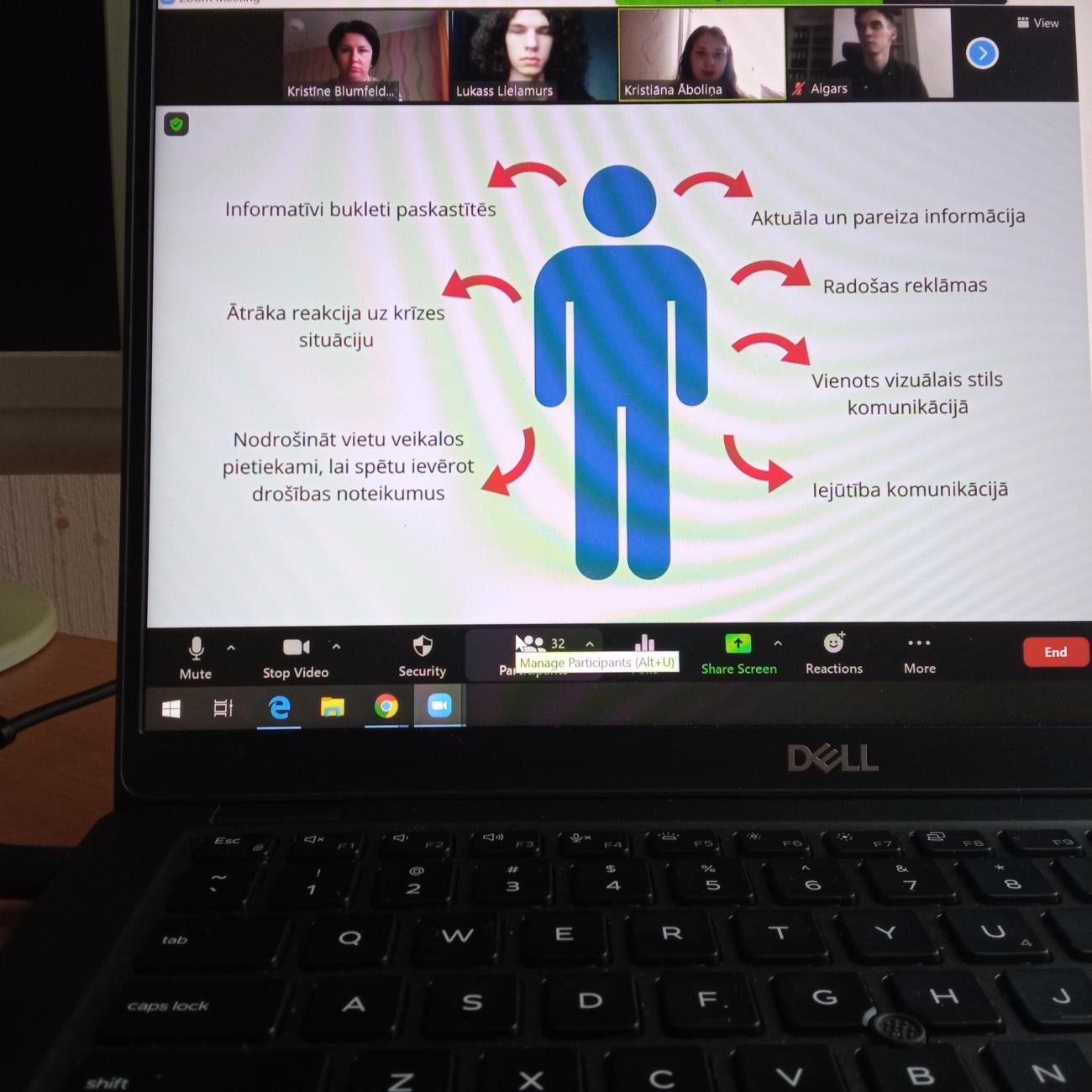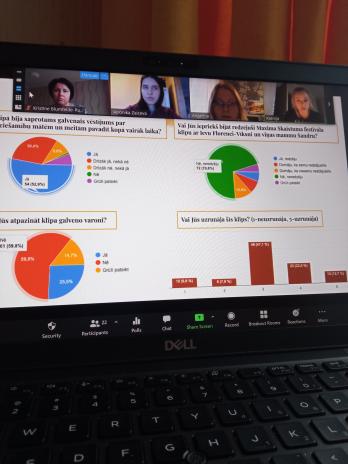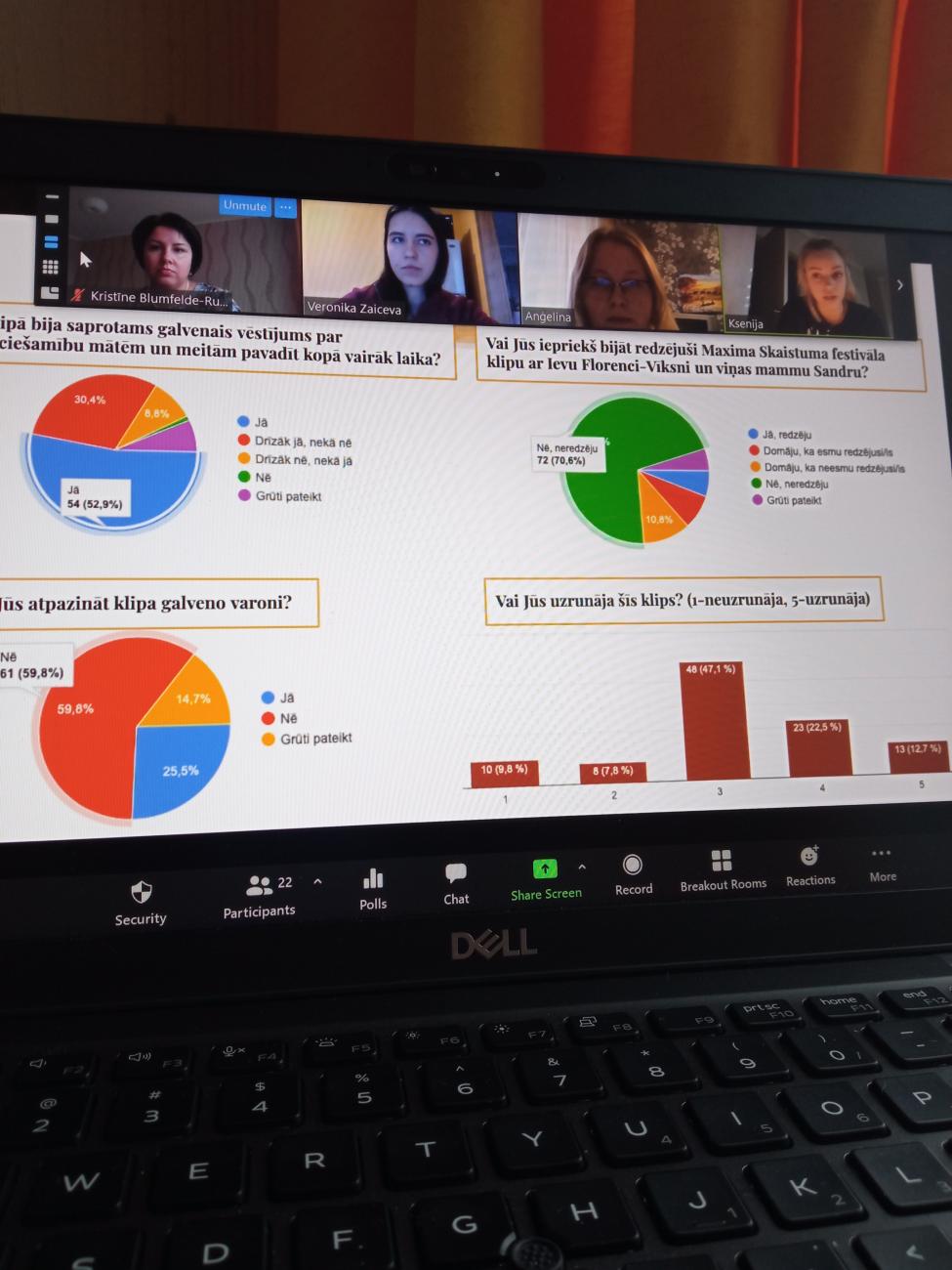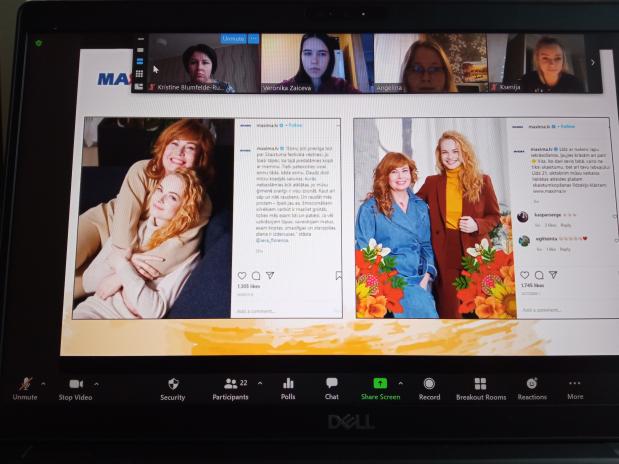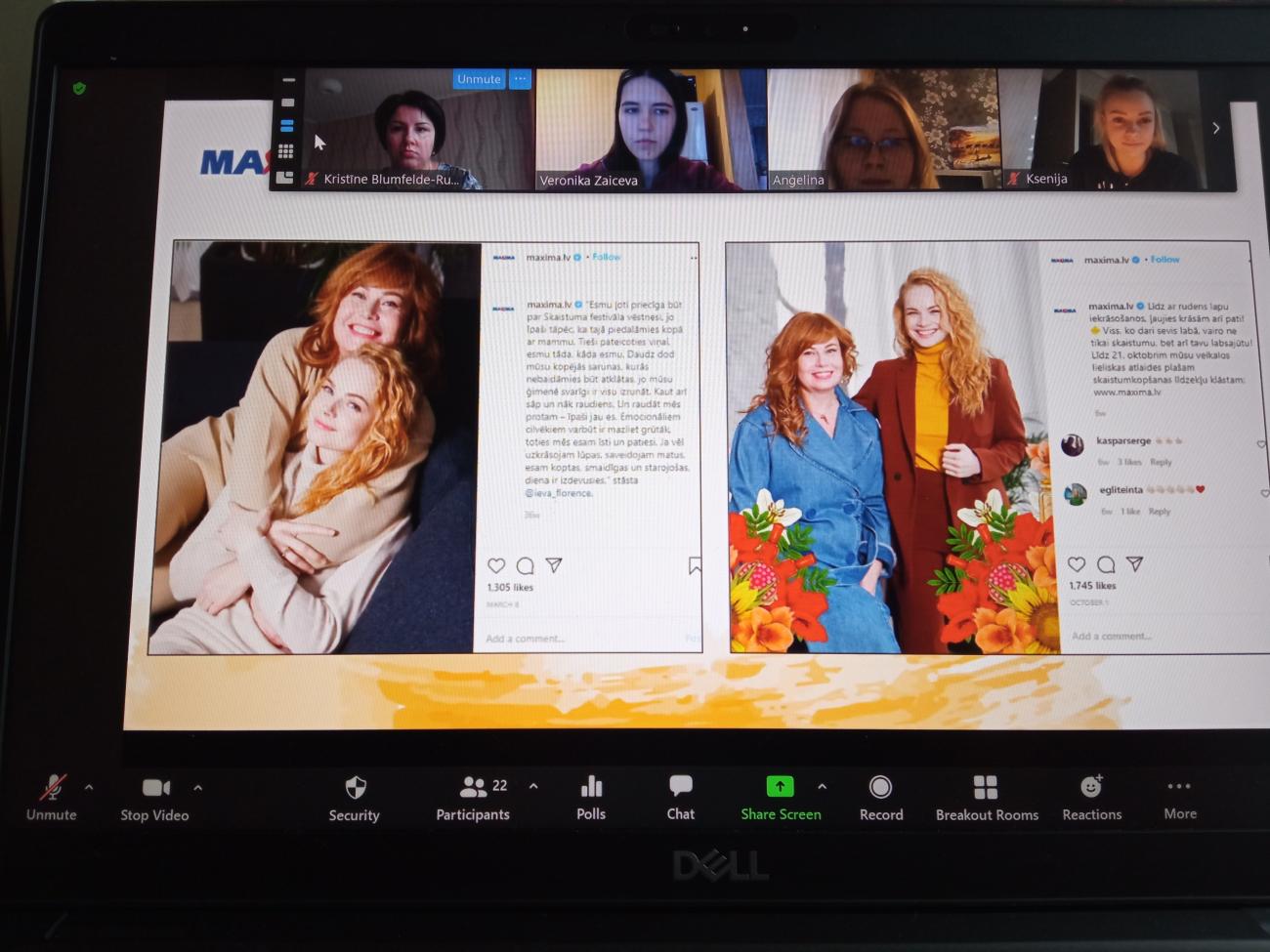Students Use Simulations to Solve Real Business Problems
Studies are especially valuable if they prepare young people for the requirements of the labour market by giving them the opportunity to try out theory in practice. It has been shown that this can be achieved by allowing students to engage in simulated situations where they have to perform practical tasks. In order for a simulation to mirror a real life situation as closely as possible, thereby increasing students’ feelings of responsibility, the tasks that the future entrepreneurs and company managers as well as marketing and advertising specialists studying at Rīga Stradiņš University (RSU) were presented with, were prepared by a representative of the company Maxima.
Students were required to research and evaluate Maxima’s holiday marketing activities and communication during the COVID-19 crisis, as well as to evaluate a specific advertising campaign and submit suggestions for possible improvements to similar campaigns in the future.
3rd-year students in the International Marketing and Advertising bachelor’s programme at the Faculty of European Studies, created subtasks, which were then handed over to “marketing agencies”, played in the simulation by 2nd-year students from the International Business and Sustainable Economy, Startup Entrepreneurship, and International Marketing and Advertising bachelor’s study programmes.
By developing and creating results that can be used by a real company in practice, the students learned from each other and learned to work in a team, to create and delegate tasks, collaborate, and present research results.
Līva Utāne, a representative from the Marketing Department at Maxima, who is a graduate of the RSU International Marketing and Advertising bachelor’s programme and the Management of International Marketing and Business master’s programme, participated in evaluating the final work: ‘As a result of the collaboration, the students have developed six studies that mirror the preparatory work I do before before each new advertising campaign for Maxima’s creative agencies.
Consequently, all the work the students created are useable in order to evaluate the marketing campaigns Maxima has implemented so far more objectively. In addition, many of the recommendations they made are rational and viable for creating next year’s communication plans.’
Kristīne Blumfelde-Rutka, lecturer at the Department of International Business and Economics and Head of the International Marketing and Advertising study programme, provided students with this opportunity as part of the Development and Management of International Brands and International Marketing study courses. Kristīne Blumfelde-Rutka often promotes students’ cooperation with industry representatives and RSU graduates in the study process.
‘This task was like the finishing touch to what the students had learned in previous years, because we had to think about a real situation, a real brand, and real suggestions that would be useful for improving the Maxima brand,’ said Anna Miķelsone, a 3rd-year student in the International Marketing and Advertising programme.
Her fellow student Lūkas Lielāmurs enjoyed trying the role of leader the most – he appreciated learning how to lead the teamwork, keep to the deadline, and supervise his team.
Of course, the tasks could also be quite challenging. ‘Each of us had the opportunity to rethink our consumer habits and values, to think about what speaks to us in an ad campaign, what we notice about every ad, and which ads we don’t notice. The first challenges in our group arose from our different perceptions, opinions and views and from trying to bring everything together into a unified vision,’ 2nd-year student Evija Dišlere says frankly.
Several participants particularly appreciated the cooperation and communication with students from different study years, enabling them to discuss and create something together. It was valuable precisely because of the current study conditions.
‘The requirement to cooperate with 2nd-year students was an interesting aspect of the task, and I experienced this for the first time in my studies. The remote study process limits communication with other students, so it was cool to do something together and to get to know them,’ says 3rd-year student Anete Keita Zute.
Evita Grigoroviča, the Project Manager of simulation-based education, points out that RSU is evaluating new ways in which to implement simulations not only in person, but also digitally in order to increasingly integrate simulation into the RSU study process, and keeping the provision of combined studies in mind. Various innovative educational technologies that would modernise the study process and create an interactive learning environment are being evaluated for this purpose.
Currently, digital simulation scenarios are being developed within the SAM 8.2.3. project, Improvement of the management process and study content modernisation at Rīga Stradiņš University (No 8.2.3.0/18/A/011). These scenarios intend to offer students the opportunity to resolve problems in a many-sided way to strengthen their understanding of the professional work environment, and to promote analytical thinking and reasoning. This approach to studies provides a safe space for trial and error, while underlining the consequences of each decision in solving a specific thematic case and acquiring the knowledge and skills needed for practical work in an interactive way.

Related news
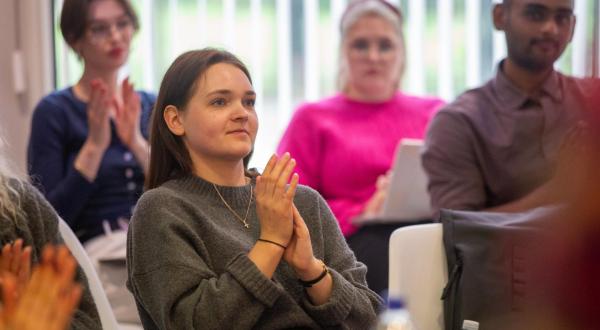 18 Student teams to start developing their ideas in B-Space incubation programmeFor RSU Employees, For Students, Innovation, B-Space
18 Student teams to start developing their ideas in B-Space incubation programmeFor RSU Employees, For Students, Innovation, B-Space